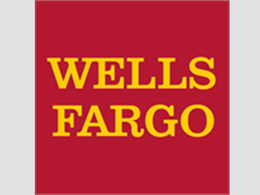
Bankers Meet in Miami for Financial Crime and Anti Money Laundering Summit
FIBA, a not-for-profit trade association whose membership includes some of the largest financial institutions in the world who are active in international banking, will be holding its 14 Annual Anti Money Laundering Compliance Conference on February 20-21, 2014 in Miami. The program will help U.S. and foreign bankers acquire first-hand knowledge of the due diligence expectations of regulators and banks under a risk-based AML/OFAC compliance program.
“We have a strong program and very high caliber speakers,” said David Schwartz, CEO of FIBA.
“The key objective is to become aware of regulators' expectations and that is where the upcoming 14th Annual FIBA AML Conference can help,” Schwartz added.
“Last year's conference, which attracted 1300 delegates from 40 countries, proved to be an outstanding learning and networking experience for the financial industry and established the type of conversation we want to create with the FIBA AML Conference. This year we plan to expand on that and there are certainly a lot of issues to cover," Schwartz concluded.
FIBA’s AML conference agenda will include a range of panels that will examine topics of great concern to anti-money laundering compliance officers, regulators, lawyers, accountants and others.
The money laundering potential of Bitcoin and other digital currencies has attracted a lot of media attention in recent months. While the growth of such technology is worthy of examination, such innovation is by no means the sole, or even the most pressing, anti-money laundering issue faced by international banks today.
Of much greater concern to compliance officers, however, are the many regulatory enforcement actions that in recent years have cited due diligence failures at banks engaged in international correspondent banking activity. Banks must figure out how to strike a proper balance and get to know their customers, and their customers' customers, without the wasted expense of unwarranted measures.
Additional topics to be covered include:
- The evolution of cyber fraud from a mere intrusion threat to a much more sinister menace that looms over banks and their customers' assets will be examined, as will the nexus between cyber fraud and anti-money laundering. A FIBA conference panel will help attendees understand the typical degree and manner of collaboration between anti-fraud and AML departments.
- The direction of AML regulation can be most readily predicted by keeping a watchful eye on the global standard-setter, the Financial Action Task Force, or FATF. But what is the FATF likely to find in its upcoming 4th Round of Mutual Evaluations and what will be the ultimate impact on countries' AML regimes and regulations. The matter will be discussed in the plenary sessions at FIBA's conference.
- As banks adapt to a world where combating money laundering is of growing importance across multiple jurisdictions, banks must maintain a keen awareness of regulatory requirements in multiple jurisdictions. Only then can they achieve a truly enterprise-wide AML program that is both globally coherent and locally compliant. Leave it to FIBA to unearth and present the latest regulatory developments of cross-border interest.
- What is happening to the risk-based approach? Why does it seem that US regulators are increasingly moving toward a zero tolerance approach to AML oversight? More than a decade out from the enactment of the game-changing USA Patriot Act, just what standard should banks expect to be held to?
This, and many other timely topics, will be explored at FIBA's conference.
For more information on the speakers, sponsorships, program, or to register for the event, please visit http://www.antimoneylaundering-fiba.com/
Related News





